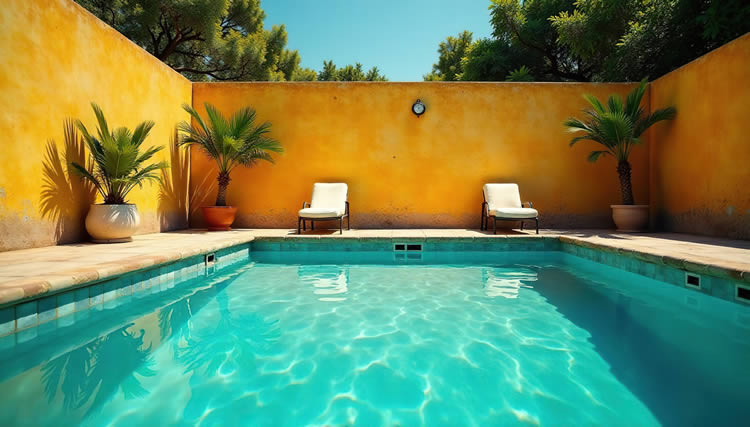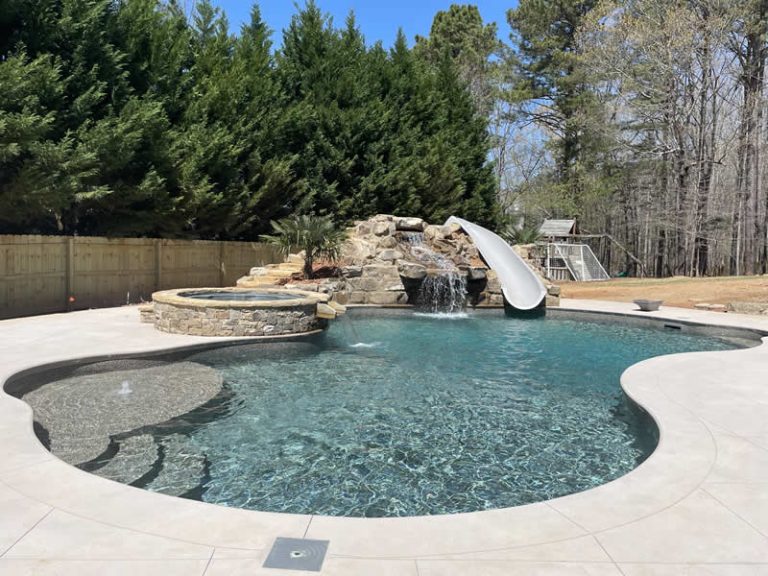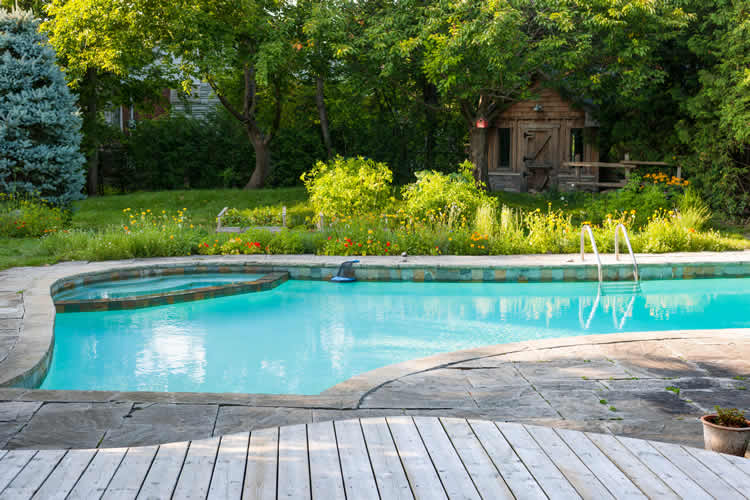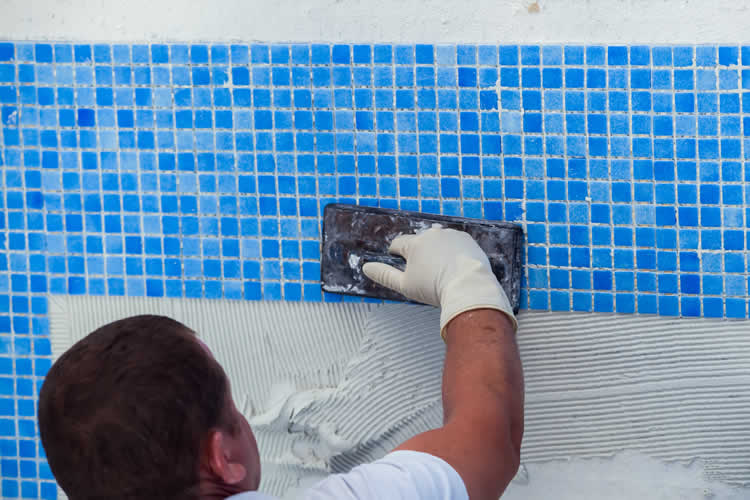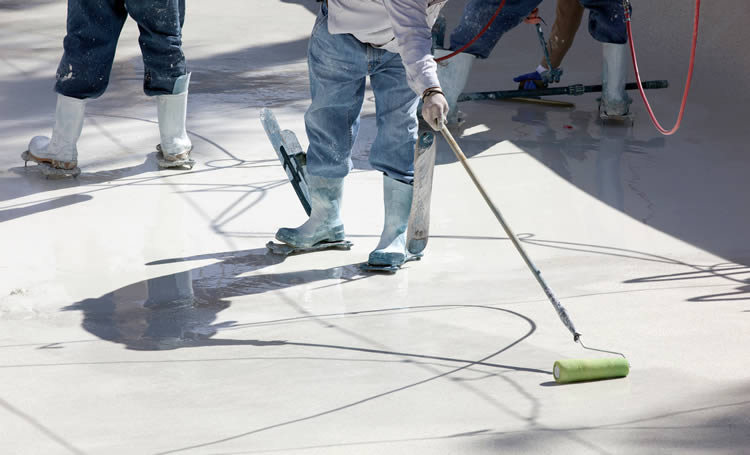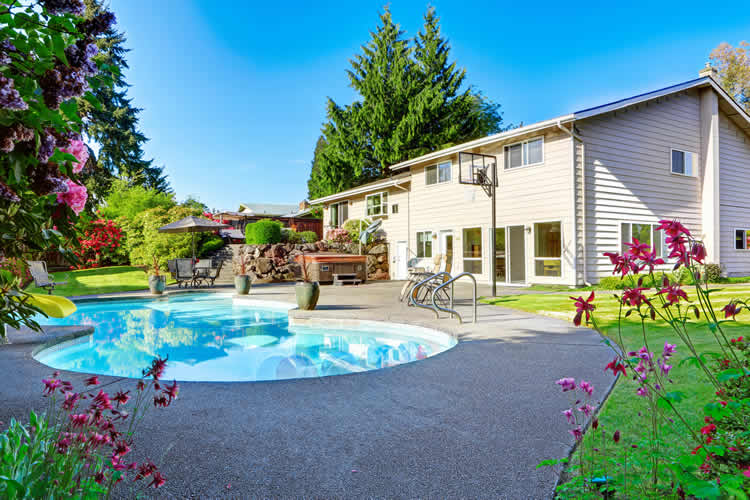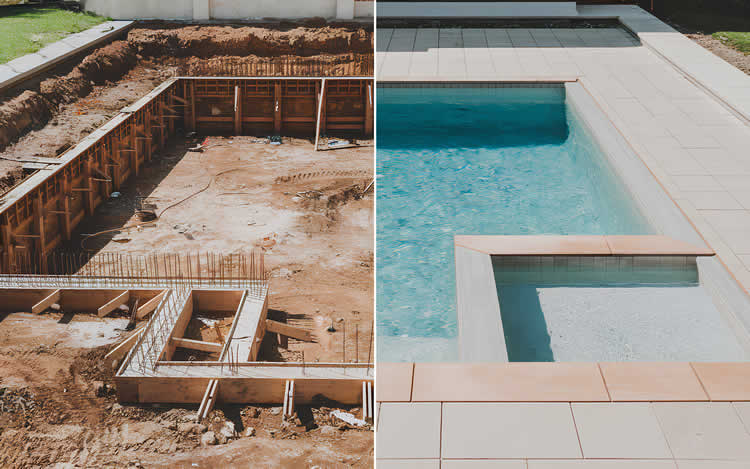Bringing an Older Pool Up to Code (and Why It Matters)
When most people think about pool renovations, they imagine new tile, better lighting, or maybe a spillover spa. But one of the smartest upgrades a Georgia homeowner can make isn’t about looks — it’s about safety and compliance.
Over the years, building codes and safety standards have changed dramatically. Many pools built before 2010 lack modern safeguards that are now required for new installations. These aren’t arbitrary rules — they exist because they save lives, reduce electrical risks, and prevent property damage.
Bringing your pool up to current code doesn’t just protect your family — it protects your investment.
Why Codes Change (and Why It Matters for You)
Pool codes evolve as technology improves and safety data accumulates. Local governments, the Georgia Department of Public Health, and national organizations like the Consumer Product Safety Commission (CPSC) regularly update standards for electrical systems, fencing, drains, and energy efficiency.
If your pool hasn’t been inspected in a decade, chances are at least one major component — plumbing, electrical, or drain design — no longer meets today’s standards.
You’re not required to bring everything up to code unless you’re renovating or selling your home, but making proactive updates keeps you safer, prevents liability, and often lowers insurance costs.
1. Drain Safety: The Virginia Graeme Baker Act
This federal law, enacted in 2008, was a game changer. It requires all public and newly built residential pools to use anti-entrapment drain covers designed to prevent suction accidents.
If your pool still has flat or outdated drain grates, it’s time to replace them — immediately. Modern domed covers and dual-drain systems distribute suction safely and cost very little to install.
It’s a small fix that eliminates a major risk.
2. Electrical and Bonding Updates
Older pools often lack proper grounding and bonding, especially if they were wired before GFCI (Ground Fault Circuit Interrupter) outlets became standard.
Signs you might need an upgrade:
- Lights flicker when the pump runs
- You feel a mild tingle in the water
- Corrosion or rust around metal fixtures
- Missing or outdated electrical panels
Updating your electrical system isn’t just about meeting code — it’s about protecting your family from potentially fatal electric shock. A licensed electrician can inspect and correct these issues quickly, often within a day.
3. Fencing and Barrier Requirements
Every Georgia county enforces barrier rules to prevent accidental drownings. Most require:
- A minimum 4-foot fence surrounding the pool area
- Self-closing, self-latching gates that open outward
- No gaps or climbable features near the fence
If your pool was built before these standards or your gate latch has worn out, replacing or modifying your fence ensures compliance — and keeps small children and pets safe.
4. Energy Efficiency and Equipment
Since 2021, federal energy regulations have required new pumps over 1 HP to meet variable-speed efficiency standards. If you’re still using a single-speed pump, upgrading isn’t just smart — it’s legally encouraged.
Other improvements that align with modern code include:
- LED lighting (low voltage and long lifespan)
- Energy-efficient heaters or heat pumps
- Automatic covers that reduce evaporation and improve safety
These upgrades don’t just meet code — they lower your monthly energy costs substantially.
5. Slip Resistance and Deck Safety
A smooth concrete deck might look clean, but it can be dangerously slick when wet. Modern safety standards call for textured or slip-resistant decking materials.
If you’re resurfacing or remodeling, adding a slip-resistant sealant or upgrading to textured pavers can instantly improve safety while refreshing your backyard’s appearance.
6. Depth Markers and Signage
For public or rental properties, current Georgia pool codes require visible depth markers and “No Diving” signage in shallow areas. Even for private homeowners, adding these details shows care — especially if you entertain guests.
It’s a small upgrade that can make a big difference in preventing injuries and limiting liability.
7. Plumbing and Filtration Improvements
Older plumbing systems often use undersized pipes or outdated materials that strain the pump and reduce circulation efficiency. During renovation, upgrading to modern PVC and adding anti-vortex main drains ensures both safety and smoother flow.
Filtration upgrades also help you meet modern water quality standards. Cartridge filters, for example, use less water and filter finer debris than older sand filters.
8. Permits, Inspections, and Insurance
When you remodel, most counties in Georgia require permits for changes to structure, plumbing, or electrical systems. Skipping these steps can cause headaches when you sell your home or file an insurance claim.
Insurers are increasingly asking whether older pools meet safety standards before renewing coverage — particularly regarding drains, barriers, and electrical components. Staying compliant isn’t just about safety; it’s about peace of mind.
Frequently Asked Questions
Q: Do I have to bring my pool up to code if I’m not remodeling?
Not legally, but it’s strongly recommended for safety and resale. Most homeowners update gradually — starting with drains, lighting, and fencing.
Q: How long does an inspection take?
A full inspection usually takes 1–2 hours. A licensed pool professional can provide a detailed report with prioritized upgrades.
Q: Are there financial incentives for code upgrades?
Some energy-efficient updates, like variable-speed pumps or LED lights, may qualify for rebates from Georgia power companies or local municipalities.
Final Thoughts
Pools are meant for fun, not worry — and staying current with safety and building codes is the best way to keep them that way. Whether you’re planning a full renovation or just replacing old components, these updates protect your family and preserve your investment.
At My Aqua Fun Pools, we specialize in helping Georgia homeowners modernize older pools to meet today’s safety and efficiency standards. From electrical rewiring to fencing and filtration, we’ll make sure your pool is as safe and compliant as it is beautiful.
Let’s Talk …
Let us take care of your Pool & landscape
At Aqua Fun, we don’t just build pools — we build relationships that last for seasons to come. Our team takes the time to understand your space, your needs, and how you actually use your backyard. Then we craft solutions that make every swim, soak, or gathering more enjoyable. It’s not about selling you more; it’s about helping you get it right.
If you’ve been thinking about improving, repairing, or re-imagining your pool, let’s talk. We’ll meet you where you are, explain your options clearly, and make sure the whole process feels simple and stress-free. That’s the Aqua Fun way — real people, real care, and results that speak for themselves.
Mon – Fri
8:00 – 6:00

